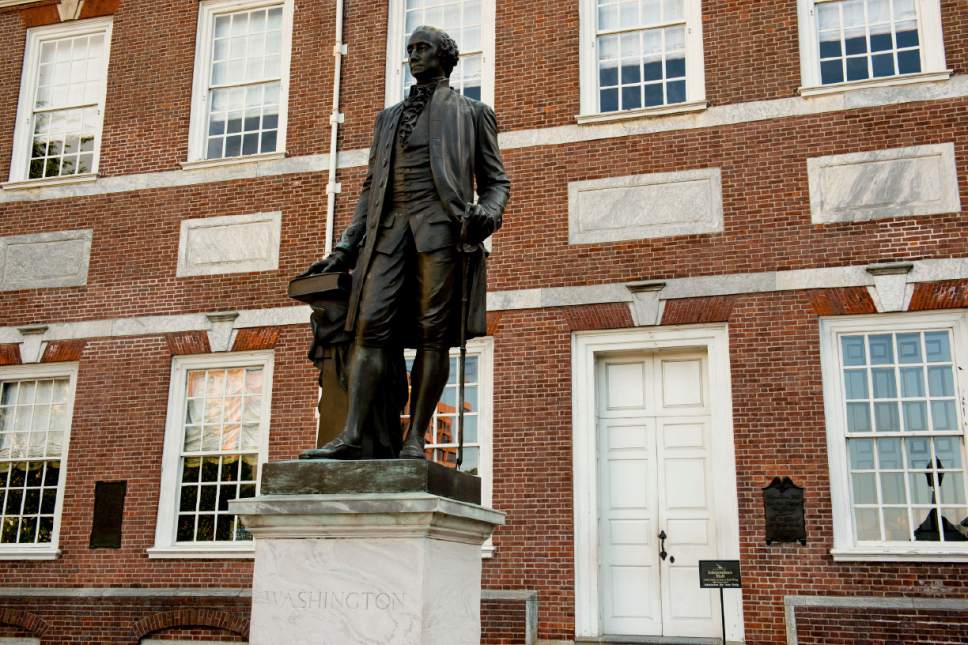This is an archived article that was published on sltrib.com in 2017, and information in the article may be outdated. It is provided only for personal research purposes and may not be reprinted.
The document adopted on this date in 1776, the thing and the action we celebrate every July 4, ended with a promise: "We mutually pledge to each other our lives, our fortunes, and our sacred honor."
Among the many things that would shock and sadden the signers of the Declaration of Independence, if they were here to see it, would be the appalling lack of such support, one for another, and how little so many of those in power seem to hold their honor sacred.
The leadership that turned the world upside down was one of people who were already influential, the cream of the crop in their hometowns and colonies, but who haggled out common ground based on respect for one another and for their shared principles.
Not everyone got everything they wanted. A clause condemning the slave trade, written by slave owner Thomas Jefferson, was edited out to appease other slave owners from the South and slave traders from the North.
But, once the document was agreed to, it became, in Jefferson's own words, "an expression of the American mind." One that, however imperfectly, set a nation on its course from a remote backwater to the most powerful, and prosperous, nation on Earth.
One of the amazing things about both the adoption of the Declaration of Independence and the later drafting of the Constitution of the United States is the realization of just how hard it can be to get free people to make common cause on anything.
Having turned their backs on the Divine Right of Kings to rule and be obeyed, Americans have had to come up with forms of leadership that made decisions and accomplished things with "the consent of the governed." Consent that has to be argued for, and won, over and over, not just from election to election, but from issue to issue and person to person.
That kind of leadership is sadly lacking in today's America. Instead of striving to unite us, sitting and potential public officials see greater percentages in dividing us, scoring partisan points, raising money and instilling the kind of fear that encourages people not to vote for your side so much as to vote against the other.
Instead of leadership, we have partisanship, an atmosphere where such people as Utah's Sen. Mike Lee counts it as a victory to shut down the government when he doesn't get his way.
Where former Rep. Jason Chaffetz devotes his considerable political talents almost exclusively to denigrating leaders of the other party — and lights out for the private sector when his own party sweeps to power and he has no one left to investigate.
Where an entire presidential election is reduced to a contest between those who chant "Lock her up" and a candidate who refers to her opponent's supporters as "a basket of deplorables."
A leadership that not only seeks the common good but can articulate a path to it is rare, not only among politicians, but also among leaders of religious organizations and the corporate world. Were it that absent from the generation that came of age in the late 18th century, there would have been no Declaration, no revolution, no United States of America.
It is proper to celebrate what such leadership accomplished 241 years ago today. But not to the exclusion of working to create such a culture of leadership in our own time.



